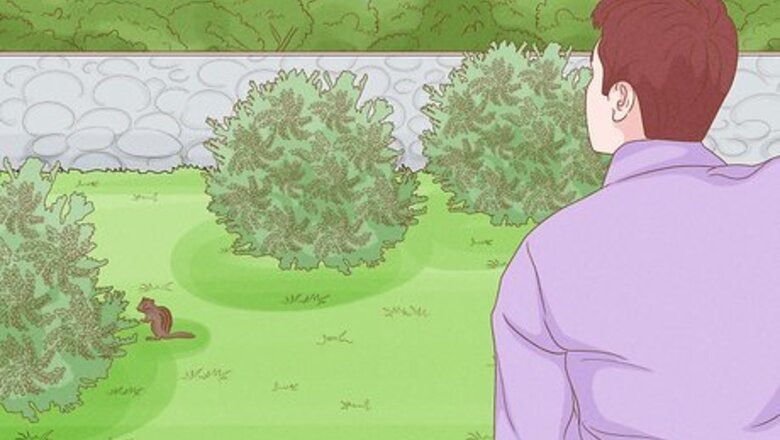
views
Watching For Signs Of Squirrels
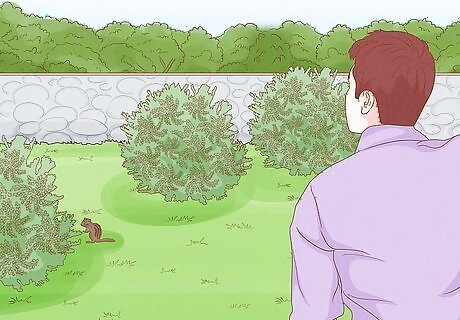
Keep an eye on your garden during the day. The best way to know if your garden has a squirrel problem is to catch one or more of them in the act. Like humans, squirrels are daytime creatures. So when you’re home during the day, check your garden from time to time.
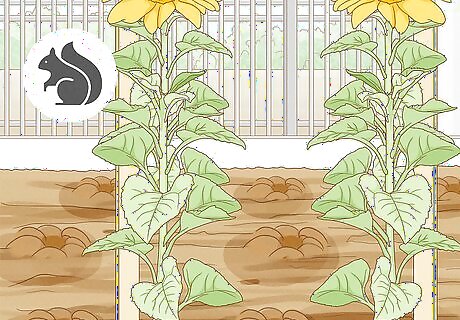
Look for small, shallow holes in your flower beds. Squirrels are small enough that any holes they dig won’t be that big. If you spot holes with a similar diameter to a golf ball, you may have a squirrel problem. Squirrels will often dig up fresh seedlings. If you plant seeds in your garden, check the site(s) regularly for several days afterward.
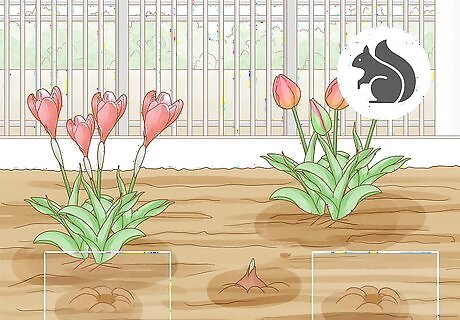
Watch for missing flower bulbs. Squirrels will often dig up flower bulbs, both to eat and to use the holes to store nuts. They are especially fond of tulips and crocuses. They tend to prefer spring bulbs the most, especially during their autumn harvest for food. If you find that your shoots are disappearing, you likely have a rabbit problem. Rabbits almost always graze close to the ground. Unlike squirrels, they prefer tender young shoots. They will also leave a clean break when they eat a plant.
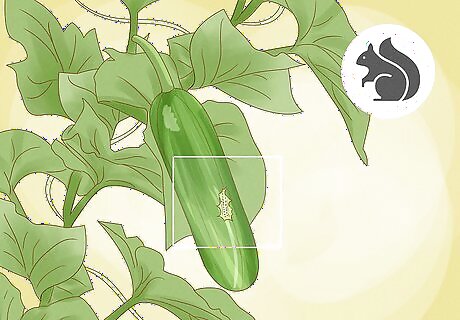
Look for bite marks on fruit and vegetables. Squirrels occasionally remove entire fruits or vegetables from gardens. More common, though, are bite marks on fruits that are beginning to ripen. Squirrels will take a few bites from one fruit and then move on to another. They tend to like corn and tomatoes.
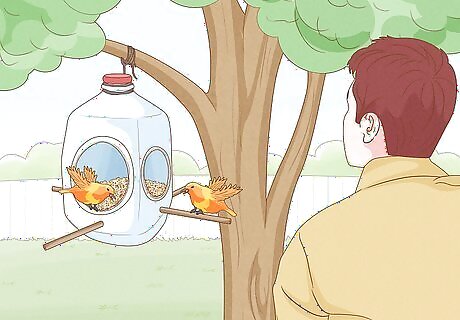
Watch your bird feeder if you have one. Squirrels will also eat seeds and other forms of bird food. If your bird feeder becomes damaged or the food level drops precipitously with no evidence of bird activity, you may have a squirrel problem.
Creating A Safe Environment
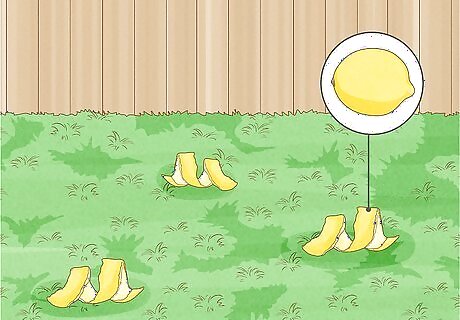
Spread an unpleasant smell around your garden. There are a variety of materials that can drive squirrels away while not harming your plants. Unlike with insects and weeds, you won’t have to use potentially toxic pesticides or herbicides to protect your garden. But no matter what animal repellent you use, be sure to reapply it regularly, especially after heavy rains. Lemon rinds, orange rinds, and coffee grounds all work as effective repellents. Human hair can also work, as squirrels generally do not like the smell of humans. Coffee grounds can also stop squirrels from digging.
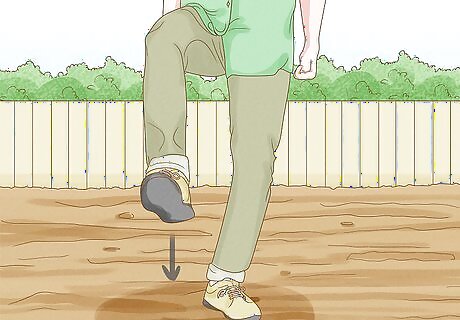
Tamp down any loose, fresh dirt. Squirrels don’t like digging in hard packed dirt. Loose dirt, on the other hand, can act as an invitation for them to dig around. After you finish working in your garden for the day, tamp down loose dirt as best you can with your hands or feet without harming your plants.
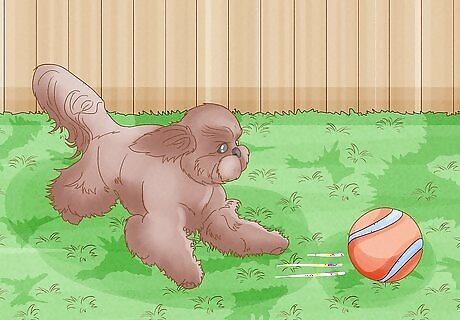
Get a dog or cat. Household pets, particularly large dogs, can help you drive squirrels away. Many dogs can be trained to chase squirrels from your garden. But you may not even have to take that step, since the smell of a dog or cat alone may be enough to convince squirrels not to attack your plants. If you don’t want a dog or cat, you can purchase wolf urine to spray around your garden. The smell should keep most small animals away.
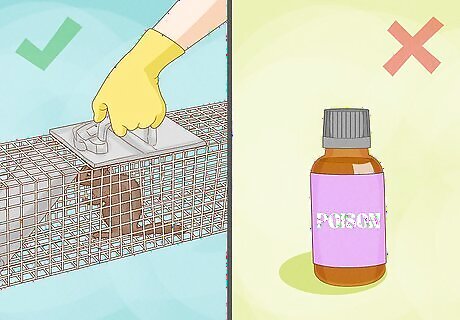
Avoid harming squirrels. Squirrels breed very quickly. Trapping or killing several of them is unlikely to put much of a dent in the local squirrel population. Squirrels are a protected species in many states. That means that trapping them alive without the appropriate game permits may leave you vulnerable to stiff legal penalties. If you want to trap squirrels, it’s best to hire a wildlife control operator. Don’t poison squirrels. It is illegal to poison wildlife in many states. If you poison a squirrel, other animals (including your family pet) may feed on the dead squirrel and become sick.
Protecting Your Sunflowers
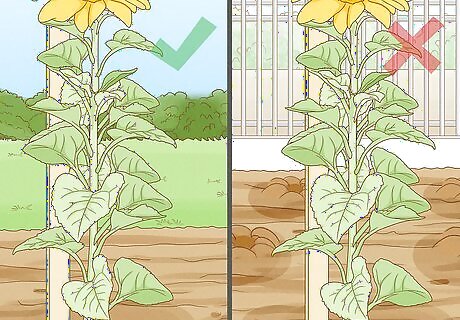
Plant sunflowers away from areas that squirrels can climb. Squirrels are nimble creatures. If you plant your sunflowers near a wall or exterior shelf, you may give squirrels an extra route to the flowers. Squirrels can leap as far as ten feet and can run across electrical lines. Keep this in mind when choosing an area to plant in. Squirrels especially like to nest in small structures like garden sheds. Avoid planting sunflowers near these structures if possible.
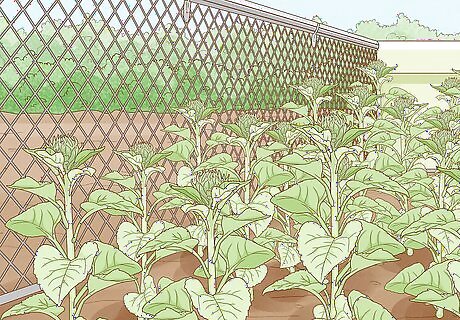
Surround the sunflower seedlings with chicken wire or other forms of wire mesh. This versatile material can provide your plants with protection from squirrels, as well as many other different animals. You will need one bale of chicken wire, wire cutters, small plastic stakes (or PVC pipes), twine or plastic zip ties, and a pair of protective gloves. Shove the stakes or pipes into the ground in a ring around where your seedlings are. Next, arrange the chicken wire so that it forms a fence around your seedlings, with the stakes or pipes as the fence posts. Attach the wire to the stakes or pipes with the twine or zip ties. If your seedlings are planted in a raised flower bed with sides made from wood, you can stretch a single layer of chicken wire over the top to protect all of the plants in that bed. Use a staple gun to attach the wire to the sides of the bed. The flowers can grow through the wire even if you stretch it directly over the seedling. You can also build a fence around the entire flower bed. If you don’t want to build a cage or fence yourself, most garden stores sell wire mesh cages designed to protect seedlings and young plants from predators.
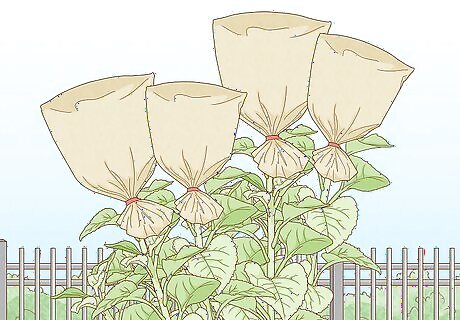
Attach protective material to sunflower heads. You can use brown paper bags or nylon mesh. Secure the bottom of the material with wire or string. Make sure the sunflower head is completely covered. Not only can the covers keep squirrels away from sunflowers, but it can help your sunflower head still breathe and prevent mold from forming. If you opt for the brown paper bag and it rains, you may need to replace the bag. You don't want the bag to rip or tear while on the sunflower head, because that can give squirrels access to the seeds.
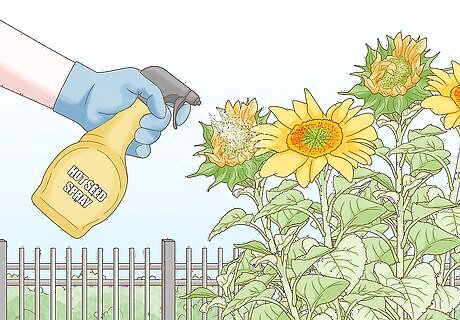
Apply a hot seed spray to your sunflower. The spray can be purchased at a gardening center or home improvement store. These sprays are non-toxic and can keep the squirrels from eating the sunflower seeds. You can also sprinkle cayenne pepper directly onto the blooms. If it rains, you will need to reapply the spray or pepper. If you apply the spray or pepper to your sunflower heads, you may need to gently rinse the sunflower seeds once you remove them from the heads. Wait until the seeds are dry before removing them from the sunflower heads, and then rinse the seeds in water. This will eliminate all the hot spice flavoring from the sunflower seeds.




















Comments
0 comment